Donn Posner – Treating Insomnia: Transdiagnostic Clinical Strategies to Optimize Sleep & Improve Outcomes in Clients with PTSD, Anxiety, Depression & Chronic Pain
$219.99 Original price was: $219.99.$43.00Current price is: $43.00.
[Instant Download] – You will receive instant download access after the purchase
- Faculty:
- Donn Posner
- Duration:
- 6 Hours 31 Minutes
- Format:
- Audio and Video
- Copyright:
- Jul 24, 2019
Description
| Manual – Treating Insomnia (5.7 MB) | 87 Pages | Available after Purchase |
Outline
Sleep Regulation Problems: How Insomnia Develops
- Factors that weaken the sleep drive
- Factors that weaken the signal of the circadian clock
- How the circadian clock & sleep drive work together to regulate sleep
- How the arousal system interferes with sleep regulation
- Cognitions & behaviors that create cognitive arousal & interfere with sleep
- Identify conditioned insomnia
Assessment & Treatment Planning
- Treat insomnia to improve outcomes of PTSD, chronic pain, depression & anxiety
- Why treating a primary mental health disorder won’t cure insomnia
- Insomnia-informed considerations for the clinical interview
- Who is a good candidate for CBT-I
- Hypnotic medications & sleep
- Drugs that can cause sleep disturbance
- Take-home assessment resources
- Sleep diary
- Limitations of research & potential risks
Assessment Factors
- Assess for comorbid sleep disorders
- Evaluate sleep continuity
- Identify daytime symptoms of insomnia
- Discern bad sleep habits
- Other assessment considerations
- When to refer to a sleep specialist
Sleep Hygiene: Decrease Clients’ Vulnerability to Insomnia
- Clock watching & implications for sleep diary
- Environmental concerns
- How eating affects sleep
- When to exercise
- Address caffeine, alcohol & nicotine use
Sleep Restriction Therapy (SRT): Strengthen the Sleep Drive and Signals From the Circadian Clock
- Goals of sleep restriction
- Sleep restriction rationale
- SRT: Step-by-step
- Considerations for setting the sleep window
- How & when to extend time-in-bed
- Rules for before-bed activities
- Address clients’ fears about SRT
- Combat difficulty with waking on time
- Troubleshooting insufficient progress
Stimulus Control (SC): Address Conditioned Arousal
- Goals of stimulus control
- Rational for stimulus control
- Stimulus control: Step-by-step
- Counter arousal strategies
- Activities for nighttime wakefulness
- Address clients’ practical concerns
- Overcome obstacles to stimulus control
Cognitive Therapy: Help Clients Change Thoughts & Beliefs that Interfere with Sleep
- Reduce arousal: The buffer zone & worry time
- Educate your client to become an expert on their own sleep disorder
- Tools to identify cognitions & belief that interfere with sleep
- Combat intrusive thoughts during sleep time
- Activities to help clients with arousal
- Reduce sleep effort & worry about lack of sleep
- Correct clients’ unrealistic expectations
- Strategies to restructure thoughts
- Behavioral experiments
Faculty

Donn Posner, Ph.D., DBSM Related seminars and products: 4
Psychologist
Donn Posner, Ph.D., a Diplomate of Behavioral Sleep Medicine (DBSM), is working as a clinical/research psychologist for the Palo Alto VA.
Prior to his role at the VA, he spent 25 years as a clinical associate professor at Brown Medical School. He served as the director of clinical behavioral medicine for Rhode Island and Miriam hospitals and was also the director of behavioral sleep medicine for the Sleep Disorders Center of Lifespan Hospitals. For 20 of those years, Dr. Posner served as the primary supervisor for a rotation of the behavioral medicine track of the clinical psychology internship at Brown. He also mentored post-doctoral fellows and lectured on behavioral sleep medicine and anxiety disorders to interns, fellows, and residents in internal medicine and psychiatry. In addition, he was a consultant for the Veteran’s Administration roll out of CBT-I and trained VA clinicians across the country in the implementation of this treatment.
Dr. Posner is one of the authors of Cognitive Behavioral Treatment of Insomnia: A Session-by-Session Guide (New York: Springer/Verlag). The book is intended for clinical trainees and non-insomnia sleep specialists, as well as more experienced clinicians from outside the sleep medicine field who wish to learn how to provide empirically validated cognitive behavioral treatment for insomnia (CBT-I).
Dr. Posner is a member of the American Academy of Sleep Medicine and became one of the first certified behavioral sleep medicine specialists recognized by that group. He is also a founding member of the Society of Behavioral Sleep Medicine and has achieved the status of Diplomate with the SBSM, the highest level of qualification and competency that the organization bestows.
Speaker Disclosures:
Financial: Donn Posner is adjunct clinical associate professor at Stanford University of Medicine. He is a clinical researcher for Palo Alto Veterans Institute for Research. Dr. Posner receives a speaking honorarium from PESI, Inc.
Non-financial: Donn Posner is a member of the American Psychological Association; Association for Behavioral and Cognitive Therapies; and the American Academy of Sleep Medicine.
Delivery Method
– After your purchase, you’ll see a View your orders link which goes to the Downloads page. Here, you can download all the files associated with your order.
– Downloads are available once your payment is confirmed, we’ll also send you a download notification email separate from any transaction notification emails you receive from IMC.sale.
– Since it is a digital copy, our suggestion is to download and save it to your hard drive. In case the link is broken for any reason, please contact us and we will resend the new download link.
– If you cannot find the download link, please don’t worry about that. We will update and notify you as soon as possible at 8:00 AM – 8:00 PM (UTC+8).
Thank You For Shopping With Us!
Be the first to review “Donn Posner – Treating Insomnia: Transdiagnostic Clinical Strategies to Optimize Sleep & Improve Outcomes in Clients with PTSD, Anxiety, Depression & Chronic Pain” Cancel reply
Related Products
Medical & Health
Medical & Health
Medical & Health
Spirituality & Religion

![[Audio Download] EP09 Topical Panel 10 - Depression - Judith Beck](https://imc.sale/wp-content/uploads/2022/02/Depression-–-Judith-Beck-Francine-Shapiro-and-Michael-Yapko-100x100.png)

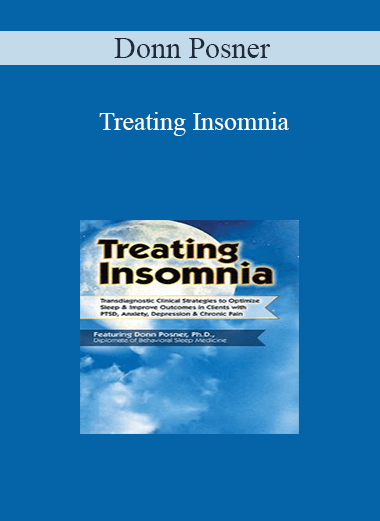


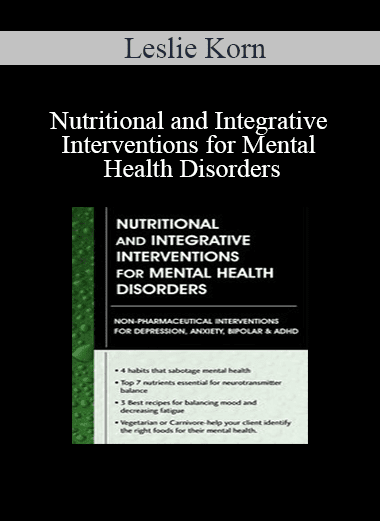

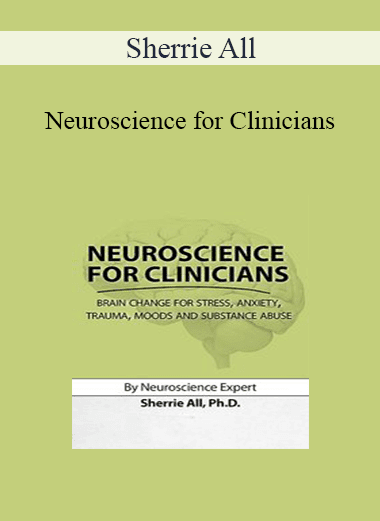
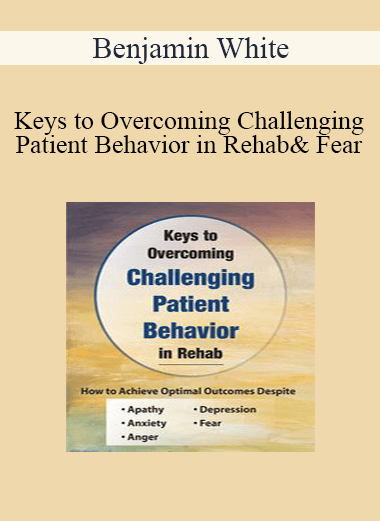
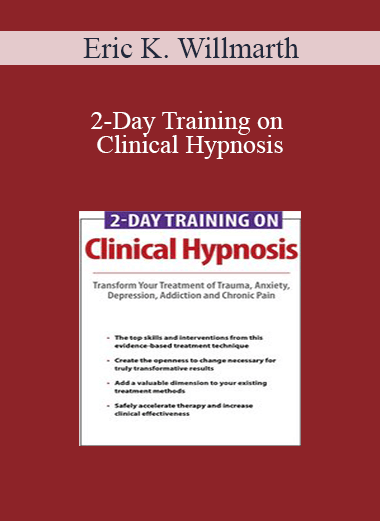
![[Audio Download] BT14 Short Course 18 - Exploring the Impact of Milton Erickson and Steve Deshazer's Work with Regard to Depression](https://imc.sale/wp-content/uploads/2022/02/Audio-Only-BT14-Short-Course-18-Exploring-the-Impact-of-Milton-Erickson-and-Steve-Deshazers-Work-with-Regard-to-DepressionAnxiety-and-Trauma-Mike-Rankin-MA-and-Dale-Bertram-PhD.png)
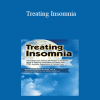
5 reviews for Donn Posner – Treating Insomnia: Transdiagnostic Clinical Strategies to Optimize Sleep & Improve Outcomes in Clients with PTSD, Anxiety, Depression & Chronic Pain
There are no reviews yet.